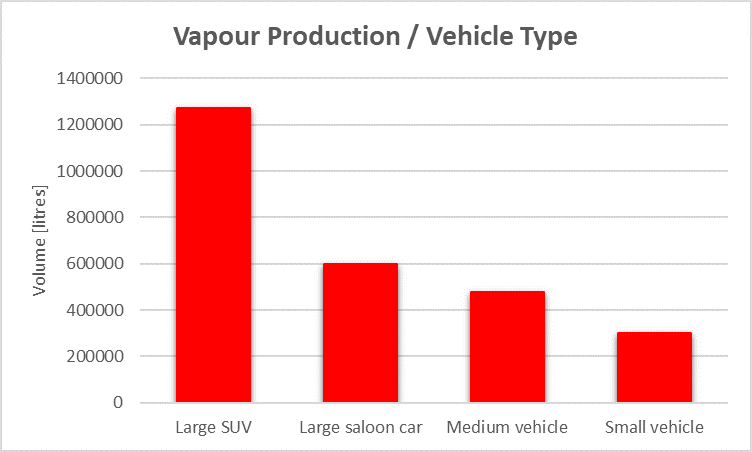With the primary goal of ensuring the safety of the global supply chain, international freight insurer TT Club draws attention to the critical question of who is initially responsible for the state in which cargo is shipped. The insurer also updates its guidance on correct dangerous goods packing procedures by reissuing its ‘Book it right and pack it tight’ publication.
The intricacies of responsibilities during the transfer of goods internationally are standardly defined by the INCOTERMS¹ that may govern the sale and purchase of the goods. This has a crucial bearing on who has responsibility for certain risks relating to the cargo in transit. TT indicates that a substantial 65% of cargo damage claims can be attributed to inadequate packing and securing in the cargo transport unit (CTU). The question of responsibility for packaging and packing has therefore an important impact on the safety of the supply chain.
“Poor packing practices, including improperly secured loads and mis-declared goods, give rise to the majority of incidents resulting in damage to cargo both on land and at sea, and potentially in injuries or broader incidents. While INCOTERMS seek to standardise the responsibilities and costs between seller and buyer under a sale of goods contract, where the goods are to be transported, such that there is clarity for delivery, the influence on the fulfilment of the transport (or ‘carriage’) contract may be less understood ,” explains Peregrine Storrs-Fox, TT’s Risk Management Director. “There is, therefore a need to increase awareness for those involved in trading goods to ensure that responsible decisions are taken in relation to the physical packing operations or, indeed, placement of cargo insurance.”
When incorporated, INCOTERMS will determine when responsibility, and therefore risk, is transferred from the seller to the buyer for delivery of the goods, which includes not just who is contracting for the transport but also inherently issues relating to packaging and packing. For example, under the “Ex Works” (EXW) INCOTERM, the risk is transferred from the seller to the buyer at the seller’s premises. This means that the buyer assumes responsibility for packing and transporting the goods from that point onward. In contrast, under the “Delivered Duty Paid” (DDP) Incoterm, the seller is responsible for delivering the goods to the buyer’s premises, including arrangements for transport.
“Issues impacting safety within the supply chain are not directly answered by INCOTERMS, and thus the concern. As with much of logistics, the range of practices is complex, but there is silence or insufficient clarity around issues of safe packaging and packing that impacts the interface between the differing types of contracts involved (including sales, financing, carriage and insurance). These terms may mitigate certain risks associated with cargo safety,” concludes Storrs-Fox. “Therefore, businesses engaged in international trade need to consider carefully the implications of the choice of terms of sale, specifically ensuring that packaging and packing are adequately understood to enhance safety.”
Regardless of any sales term that may be agreed, therefore, both parties need to consider responsibly the broader issues. However, TT urges buyers, often also importers, particularly to consider carefully the potential implications of the term selected, not just in relation to the simple division of responsibilities, but also the impact of the condition of the goods at the commencement of the movement on all involved in fulfilling the transport, as well as the wider environment.
Alongside this alert on the influence of this trading scenario may have, TT regularly highlights safety issues arising from inadequate CTU packing processes, most notably in relation to Dangerous Goods. In regard to this critical aspect of international trade, TT has, along with its sister insurance mutual UK P&I, recently published an update to the ‘Book it right and pack it tight’², joint publication, now reflecting Amendment 41-22 of the International Maritime Dangerous Goods (IMDG) Code, which enters mandatory effect on 1st January next year.
This publication also explains the importance of the Code of Practice for Packing of Cargo Transport Units, known as the CTU Codeᵌ and provides the important reminder from caselaw that it is the shipper’s duty to ensure that the carrier is alerted to all the hazards posed by the cargo, even beyond what may be strictly required by the regulations.
TT’s intention in all these regards is to support shippers, forwarders, those who pack CTUs, and all carriers to understand the interplay of differing responsibilities in ensuring a safe outcome for all.
¹ https://iccwbo.org/business-solutions/incoterms-rules/incoterms-2020
² https://www.ttclub.com/news-and-resources/publications/book-it-right-and-pack-it-tight
ENDS
About TT Club
TT Club is the established market-leading independent provider of mutual insurance and related risk management services to the international transport and logistics industry. TT Club’s primary objective is to help make the industry safer and more secure. Founded in 1968, the Club has more than 1200 Members, spanning container owners and operators, ports and terminals, and logistics companies, working across maritime, road, rail, and air. TT Club is renowned for its high-quality service, in-depth industry knowledge and enduring Member loyalty. It retains more than 97% of its Members, with a third of its entire membership having chosen to insure with the Club for 20 years or more.












